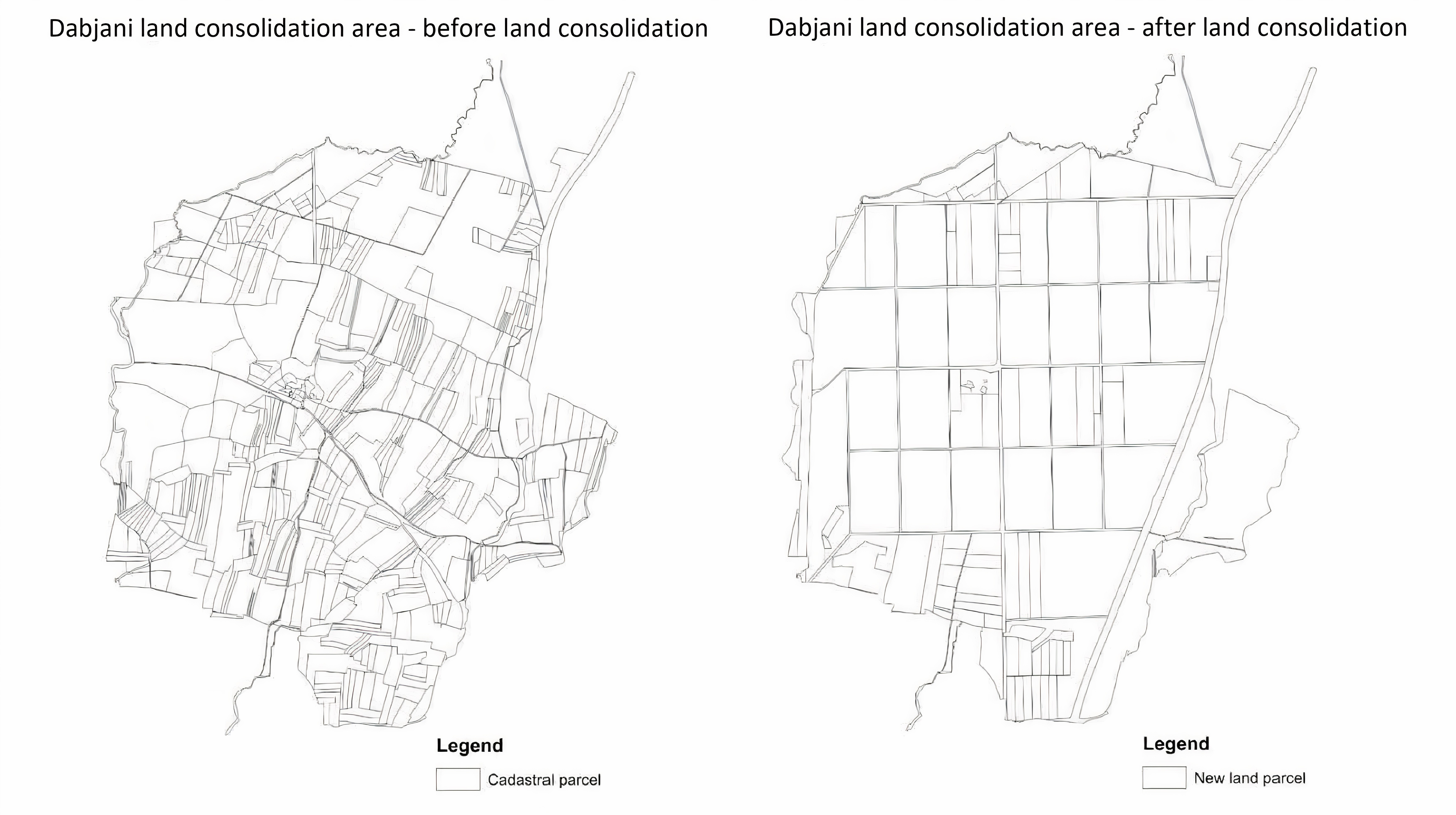Tender for construction of agricultural infrastructure in Dabjani village

Improved access roads in the land consolidation area of Dabjani, North Macedonia
©FAO
The EU-funded project “Enhancing Land Consolidation in North Macedonia”, co-funded and implemented by the Food and Agriculture Organization of the United Nations (FAO) has launched a public tender (Reference number: 2023/REUXD/REUTD/122655) for the provision of services for “Construction of hydro meliorative objects and objects intended for improvement and landscaping of agricultural land (gravel access/service roads) in the village Dabjani, Municipality of Dolneni’’.
Activities to be carried out as part of this tender include construction works for enhancement of the agricultural infrastructure in the land consolidation area of Dabjani. More specifically, this will involve both rehabilitation of existing gravel access/service roads and construction of new ones. Additionally, hydro meliorative interventions will be implemented to improve the drainage system, including the construction of passages over existing drainage channels using pipes and tubular culverts.
Potential bidders can be all construction companies registered in the Republic of North Macedonia, which possess at least License B for construction, issued by the Ministry of Transport and Communication of the Republic of North Macedonia.
In order to access the tender documents and submit a proposal, interested companies should first register in the United Nations Global Marketplace (UNGM) portal (www.ungm.org/Vendor/Registration), as only UNGM registered companies are eligible to participate. After successful registration, companies will be able to access the tender documents and submit their proposals through the same UNGM portal (www.ungm.org/Account/Account/Login).
The deadline for submitting an electronic proposal for the tender is 21 August (Monday) 2023, no later than 13:00 hrs, CET.
Background note:
The land consolidation area of Dabjani is situated in the Municipality of Dolneni, approximately 22 km away from the city of Prilep. It is currently the largest ongoing land consolidation project in North Macedonia. The area covers 742 hectares (ha) of agricultural land, with ownership divided between 85 private landowners (435 ha) and the State (307 ha).
A Feasibility Study for Dabjani was conducted in 2019 to assess the potential for land consolidation, examining the agricultural land, landownership and legal issues, conditions of the existing agricultural infrastructure, and the level of interest among landowners to participate in the land consolidation process. The study also confirmed the majority-based land consolidation approach which is applied for land consolidation in Dabjani.
After conducting the Feasibility Study, the re-allotment planning was conducted including the design of the necessary agricultural infrastructure interventions within the land consolidation area. The Re-allotment Plan was adopted in January 2022. Through the land re-allotment process supported by the EU-funded MAINLAND project, the number of land parcels in Dabjani has been significantly reduced from 602 to 127 parcels, resulting in regularly shaped parcels with an average size of 5.84 hectares, a substantial increase from the previous average of just 1.23 hectares before the land consolidation process.
In the frame of the EU-funded ‘’Enhancing Land Consolidation in North Macedonia’’ Project, Main Design was prepared for the construction of hydro meliorative objects and objects intended for the improvement and landscaping of agricultural land (gravel access/service roads) in the village Dabjani.
A construction permit was issued by the Municipality of Dolneni on 13 July 2023 with No. 33-970/11.

For more information related to the press release please contact:
Radmila Slavkova, FAO National Communication Specialist
tel: +389 (0)71 21 23 08
e-mail: [email protected]
This channel should not be used to obtain clarifications on issues related to the tender itself. Only channels indicated in the tender document should be used for that purpose.


